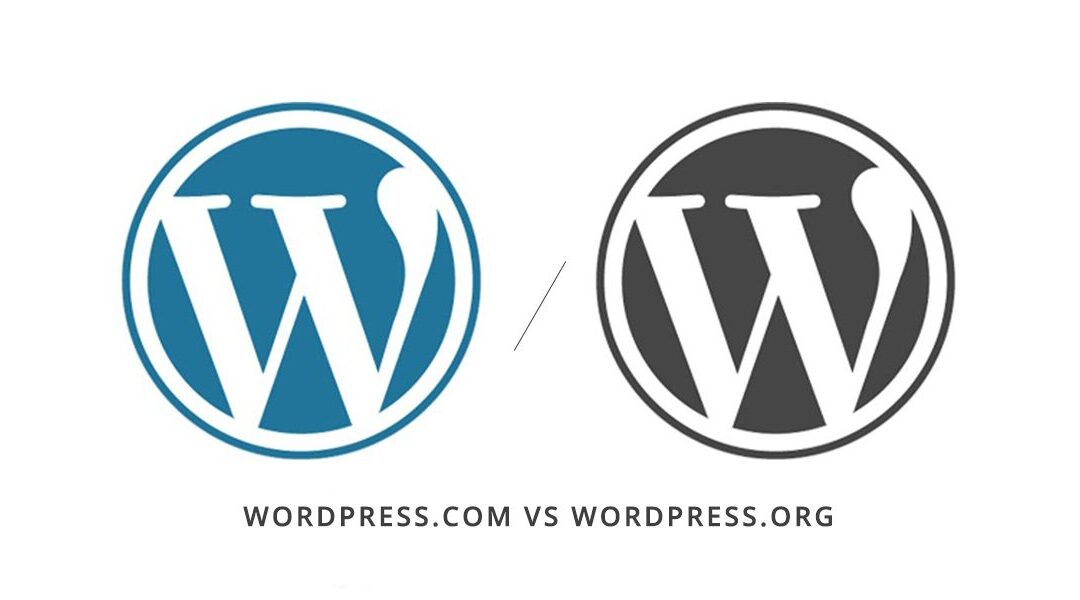Essentially, the main difference between the two comes down to the nature of use of the WordPress software and its hosting.
What is WordPress.com?
These features/benefits see that hosting, website maintenance, and security measures are automatically taken care of so that the user simply has to sign up, register a blog or site name, and can begin publishing almost instantaneously.
While this sounds great, there are some setbacks.
As hosting, security and maintenance are free forever from a cost perspective, opting for WordPress.com might be perfect for some users, however, there are quite a number of limitations in the free version that may limit others. A number of additional elements – such as using a premium theme, using a custom domain, increasing storage space and more – all come for a fee.
Visit WordPress.com for more information.
What is WordPress.org?
While the WordPress software is free, the user is responsible for setting up and managing the website’s server.
Here, the user will need to find a hosting company, purchase a domain name and manage the server over time, all for a set fee that is billed periodically (typically, annually). This entire process implies that the website is ‘self-hosted’.
Even though this may seem like a bit of an effort, the user will have full control and freedom over their website. Here, they’ll be able to access the site files on their server and can tinker around with the code if they like. They’re also free to use a number of custom themes and plugins in order to give their website the form and function that they desire.
This freedom and control comes with a trade-off. Using WordPress.org means that, unlike the features and benefits offered through the WordPress.com route, the user will have to take responsibility for maintaining their website. As well as maintaining up-to-date software and running regular backups, the user will need to take care of a number of website safety and security measures.
Visit WordPress.org for more information.
WordPress.com vs. WordPress.org: Our Recommendation
This entails setting up your own server, downloading the WordPress files from the repository and creating your own website.
If you’re in the phase of just starting out, and purchasing a full server hosting plan seems like a bit too much of a commitment, consider downloading the source files and using them in conjunction with a localhost. A localhost (we love DesktopServer) essentially allows you to set up a server on your computer that runs completely offline. With a localhost set up and running, you can create a testing environment where you can test out the WordPress.org files, themes, child themes, plugins etc., without having to pay for anything or messing up a live site.
We wrote an in-depth How To tutorial detailing how to set up a localhost with DesktopServer. Read the first installment of the 4-part tutorial series and learn how you can create an offline testing environment to play around with WordPress.org files for free.
Once you have downloaded the source files via the repository, and have set up your host, a world of opportunities opens up to you. From themes to child themes to plugins, you’ll have plenty of options for design, development, and customization.
We highly recommend investigating the Divi theme by Elegant Themes and using this incredible platform as the framework for your WordPress website.
If you opt for this route, you can easily couple the Divi framework with a Divi-specific child theme.

If you’re new to the concept of child themes, read this blog post to understand why it’s important to develop with a child theme, and too, how they can drastically speed up your development time.
We really hope that you have enjoyed reading this blog post and that it helped both answer a few questions and steer you in the best direction for your web development efforts.
If you have any comments or queries below please feel free to share them below! We love receiving your feedback!
Thanks for reading!


WordPress.com business allows you to install most plugins from the repo.
https://en.support.wordpress.com/plugins/
So the difference is that as clear between self-hosted.